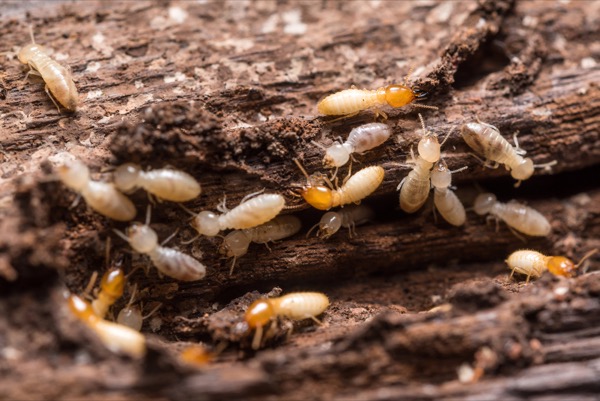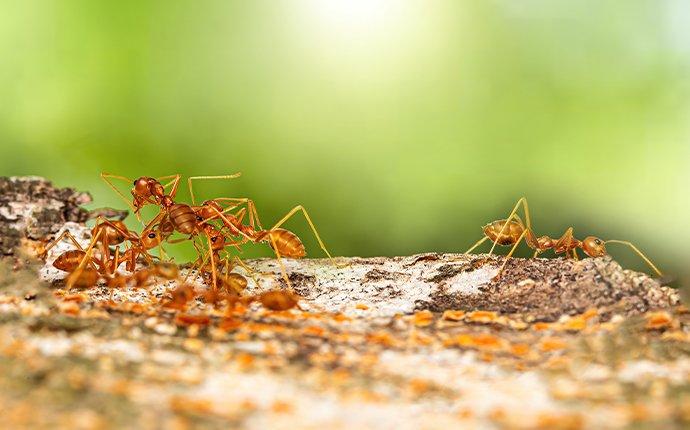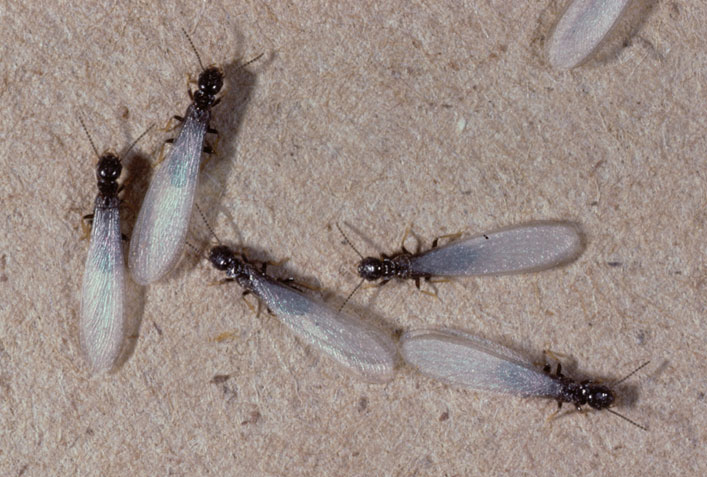Ecological Impact of Parasite Control: Balancing Effectiveness With Sustainability
The ecological influence of pest control is a vital problem that needs a fragile balance between accomplishing efficiency in taking care of bugs and ensuring sustainability of our ecosystems. From the use of harmful chemicals that seep into our soil and water to the unintentional repercussions on non-target types, the repercussions of conventional pest control techniques are significant.
Damaging Chemicals in Parasite Control
The utilization of hazardous chemicals in insect control positions significant environmental and wellness threats that necessitate cautious factor to consider and mitigation techniques. Pesticides, pesticides, and herbicides are generally utilized to eradicate pests, however their extensive application can lead to unplanned effects. These chemicals can infect soil, water resources, and the air, influencing not just the targeted parasites but also valuable pests, wild animals, and humans.

To resolve these dangers, incorporated parasite monitoring (IPM) strategies are being advertised as a much more sustainable alternative. IPM involves a combination of approaches such as organic control, environment adjustment, and the targeted use pesticides as a last option (ant control davidson nc). By taking on an all natural technique to pest control, we can lessen the environmental and health influences connected with damaging chemicals while efficiently managing pest populaces
Influence On Non-Target Variety
Thinking about the unintended effects of pest control methods, the effect on non-target species is a crucial facet that needs thorough analysis. While insect control actions aim to target specific bugs, various other organisms in the environment may be accidentally affected. Non-target types, including valuable insects, birds, animals, and also plants, can experience indirect or direct harm from pesticide applications or organic control methods.
Insecticides created to fight a certain bug parasite might hurt pollinators like or all-natural killers such as ladybugs. Organic control representatives, if not species-specific, can posture threats to unintended targets, interrupting the environmental balance.
To reduce the influence on non-target types, integrated bug administration (IPM) methods that highlight an alternative method to pest control are suggested. These techniques prioritize using eco-friendly techniques, decreasing harm to beneficial microorganisms while properly handling pest populations. Conducting comprehensive danger assessments and checking the end results of insect control efforts are essential steps in protecting non-target species and advertising general community wellness.
Soil and Water Contamination
Unintentional ecological repercussions of parasite control techniques expand beyond affecting non-target species, with substantial implications for soil and water contamination - ant control services. Chemicals, herbicides, and chemical plant foods used in parasite control can seep right into the dirt and contaminate groundwater, positioning a danger to both terrestrial and marine environments.
Water contamination is an additional essential concern linked with bug control methods. To reduce soil and water contamination from pest control tasks, incorporated insect administration strategies that prioritize sustainability and minimize chemical inputs are crucial.
Air Air Pollution From Pesticide Usage
Direct exposure to airborne chemicals during agricultural applications poses a significant problem for air pollution control measures. They can volatilize right into the air and type volatile natural compounds (VOCs) and other air-borne pollutants when chemicals are sprayed onto crops - termite control services. These chemicals can add to the development of ground-level ozone, a major part of smoke that can have harmful effects on human health, crop performance, and general air quality. Furthermore, pesticide drift, where pesticides are lugged by the wind to unintentional areas, can cause the contamination of nearby ecological communities and water bodies.

Approaches for Sustainable Insect Control
In the realm of agricultural practices, implementing lasting insect control methods is vital for preserving ecological equilibrium and guarding crop yields. Lasting parasite control stresses using eco-friendly methods to manage bug populations effectively while decreasing damage to non-target microorganisms and environments. Integrated Parasite Management (IPM) is a commonly taken on strategy that ant control huntersville nc incorporates organic, cultural, physical, and chemical control approaches to attain long-lasting parasite administration solutions.
One trick strategy in lasting bug control is promoting biodiversity within agroecosystems. By boosting natural adversaries of bugs, such as predators and parasitoids, farmers can decrease the requirement for synthetic chemicals. Plant turning and diversification are additionally effective methods to interfere with pest life cycles and produce less positive problems for parasites to thrive. Furthermore, making use of pest-resistant plant ranges and using techniques like trap chopping can help lower insect pressure without counting heavily on chemical treatments. Ultimately, by incorporating these sustainable bug control approaches, farmers can attain a balance in between pest management efficiency and ecological stewardship.
Final Thought
In verdict, the ecological impact of pest control techniques have to be meticulously considered to stabilize effectiveness with sustainability. Dangerous chemicals made use of in pest control can result in dirt and water contamination, air pollution, and damage non-target species - termite control services. It is essential to implement lasting parasite control methods to decrease these negative effects on the setting and advertise a much healthier ecological community for future generations
By adopting an alternative strategy to pest control, we can reduce the environmental and health and wellness effects connected with unsafe chemicals while properly managing pest populaces.

To alleviate the air pollution created by chemical use, it is important to adopt integrated pest management techniques that prioritize the usage of non-chemical pest control methods, such as plant rotation, all-natural predators, and resistant plant selections. Sustainable pest control emphasizes the use of ecologically pleasant techniques to take care of parasite populaces effectively while minimizing injury to non-target organisms and ecological communities. Integrated Bug Monitoring (IPM) is a widely taken on method that integrates organic, social, physical, and chemical control techniques to achieve lasting pest administration remedies.